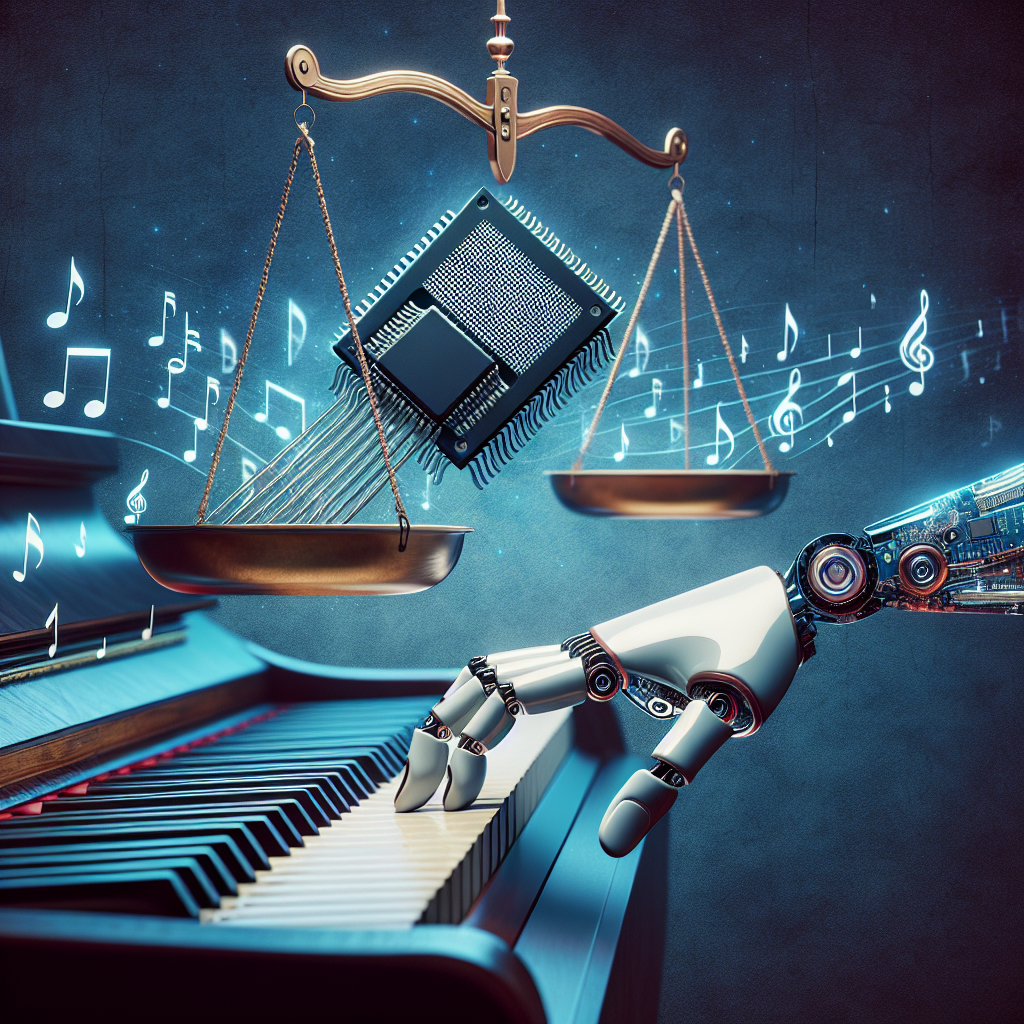In recent years, the use of artificial intelligence (AI) in music has become increasingly prevalent. From composing and producing music to analyzing and recommending songs, AI technology is revolutionizing the music industry in numerous ways. However, with the rapid advancement of AI in music, many ethical questions have arisen. In this article, we will explore the ethics of AI in music, from issues of copyright infringement to concerns about the future role of human musicians.
AI in music has the potential to greatly benefit both artists and consumers. For musicians, AI can be a powerful tool for composing and producing music, helping them to explore new creative avenues and streamline their workflow. AI can also help artists reach a wider audience by analyzing data to recommend songs and create personalized playlists. For consumers, AI can provide a more personalized and immersive music experience, tailoring recommendations to individual tastes and preferences.
However, the use of AI in music also raises a number of ethical concerns. One of the most pressing issues is that of copyright infringement. As AI technology becomes more sophisticated, there is a growing concern that AI-generated music could infringe on the copyright of existing works. This raises questions about who owns the rights to AI-generated music and how artists can protect their intellectual property in an increasingly digital world.
Another ethical issue is the potential impact of AI on the role of human musicians. As AI technology continues to advance, there is a fear that human musicians could be replaced by AI systems that can compose and perform music more efficiently and effectively. This raises questions about the future of the music industry and the ethical implications of using AI to replace human creativity and expression.
There are also concerns about the biases and prejudices that can be embedded in AI systems. AI algorithms are only as good as the data they are trained on, and if that data is biased or incomplete, the AI system may perpetuate those biases. In the context of music, this could lead to discriminatory practices in music recommendations and playlists, reinforcing existing inequalities and exclusionary practices in the industry.
Furthermore, there are concerns about the transparency and accountability of AI systems in music. As AI technology becomes more complex and opaque, it can be difficult to understand how AI systems make decisions and recommendations. This lack of transparency raises questions about who is responsible for the ethical implications of AI in music and how to hold AI systems accountable for their actions.
Despite these ethical concerns, there are also many potential benefits to using AI in music. AI technology has the potential to democratize the music industry, giving independent artists and musicians access to powerful tools and resources that were previously only available to major record labels. AI can also help to preserve and promote musical diversity by recommending a wider range of artists and genres to listeners.
In order to address the ethical challenges of AI in music, it is important for artists, industry professionals, and policymakers to engage in open and transparent discussions about the implications of AI technology. This includes developing ethical guidelines and best practices for the use of AI in music, as well as promoting diversity and inclusion in the development and implementation of AI systems.
One potential solution to the ethical challenges of AI in music is the development of AI systems that are designed to work in collaboration with human musicians, rather than replacing them. By combining the creative talents of human musicians with the computational power of AI technology, it is possible to create new and innovative music that transcends the limitations of either human or machine alone.
Ultimately, the ethics of AI in music are complex and multifaceted, requiring a nuanced and thoughtful approach to navigate the challenges and opportunities of this rapidly evolving technology. By engaging in open and transparent discussions about the ethical implications of AI in music, we can ensure that AI technology is used in a way that benefits artists, consumers, and the music industry as a whole.
FAQs:
Q: Can AI really compose music?
A: Yes, AI can compose music using algorithms and machine learning techniques. AI systems can analyze existing music data to generate new compositions that mimic the style and structure of human-created music.
Q: Is AI music original?
A: While AI-generated music can sound similar to human-created music, it is still considered original in the sense that it is created by an AI system rather than a human composer. However, there are concerns about copyright infringement and the ownership of AI-generated music.
Q: Will AI replace human musicians?
A: While AI technology has the potential to automate certain aspects of music creation and production, it is unlikely that AI will completely replace human musicians. AI and human musicians can work together to create new and innovative music that combines the best of both worlds.
Q: How can artists protect their music from AI infringement?
A: Artists can protect their music from AI infringement by registering their works with copyright authorities, monitoring for unauthorized use of their music, and engaging in legal action against those who infringe on their copyright.
Q: What are the benefits of using AI in music?
A: The benefits of using AI in music include enhanced creativity and productivity for artists, personalized music recommendations for consumers, and the democratization of the music industry for independent artists and musicians.
Q: How can we ensure the ethical use of AI in music?
A: To ensure the ethical use of AI in music, it is important to develop ethical guidelines and best practices for the use of AI technology, promote diversity and inclusion in the development of AI systems, and engage in open and transparent discussions about the implications of AI in music.

